
Fayette County is a county located in the north central portion of the U.S. state of Georgia. As of the 2020 census, the population was 119,194, an increase from 106,567 in 2010. Fayette County was established in 1821. The county seat, Fayetteville, was established in 1823. Much of Fayette County is bordered on the east side by the Flint River.

Andrew Jackson Young Jr. is an American politician, diplomat, and activist. Beginning his career as a pastor, Young was an early leader in the civil rights movement, serving as executive director of the Southern Christian Leadership Conference (SCLC) and a close confidant to Martin Luther King Jr. Young later became active in politics, serving as a U.S. Congressman from Georgia, United States Ambassador to the United Nations in the Carter Administration, and 55th Mayor of Atlanta. He was the first African American elected to Congress from Georgia since Reconstruction, as well as one of the first two African Americans elected to Congress from the former Confederacy since Reconstruction, alongside Barbara Jordan of Texas. Since leaving office, Young has founded or served in many organizations working on issues of public policy and political lobbying.
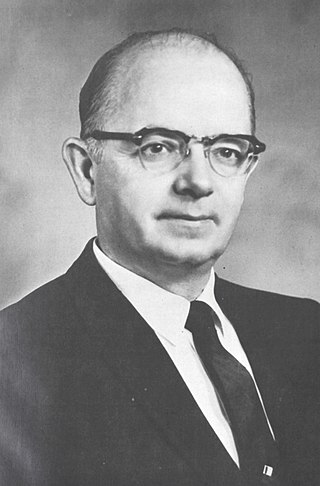
Lester Garfield Maddox Sr. was an American politician who served as the 75th governor of Georgia from 1967 to 1971. A populist Southern Democrat, Maddox came to prominence as a staunch segregationist when he refused to serve black customers in his Atlanta restaurant, the Pickrick, in violation of the Civil Rights Act of 1964. As he was ineligible to run for a second consecutive gubernatorial term, he sought and won election as lieutenant governor, serving alongside his successor as governor, Jimmy Carter.

Maynard Holbrook Jackson Jr. was an American attorney and politician who served as the 54th mayor of Atlanta, Georgia from 1974 to 1982, and again as the city's 56th mayor from 1990 to 1994. A member of the Democratic Party, he was the first Black mayor of Atlanta and of any major city in the South; his three terms made him the second longest-serving mayor in the city's history, after six-term mayor William B. Hartsfield.

The history of Atlanta dates back to 1836, when Georgia decided to build a railroad to the U.S. Midwest and a location was chosen to be the line's terminus. The stake marking the founding of "Terminus" was driven into the ground in 1837. In 1839, homes and a store were built there and the settlement grew. Between 1845 and 1854, rail lines arrived from four different directions, and the rapidly growing town quickly became the rail hub for the entire Southern United States. During the American Civil War, Atlanta, as a distribution hub, became the target of a major Union campaign, and in 1864, Union William Sherman's troops set on fire and destroyed the city's assets and buildings, save churches and hospitals. After the war, the population grew rapidly, as did manufacturing, while the city retained its role as a rail hub. Coca-Cola was launched here in 1886 and grew into an Atlanta-based world empire. Electric streetcars arrived in 1889, and the city added new "streetcar suburbs".

Ivan Earnest Allen Jr., was an American businessman who served two terms as the 52nd mayor of Atlanta, during the Civil Rights Movement of the 1960s.
Samuel A. Massell Jr. was an American businessman and politician who served from 1970 to 1974 as the 53rd mayor of Atlanta, Georgia. He was the first Jewish mayor in the city's history and the most recent non-black mayor of Atlanta.
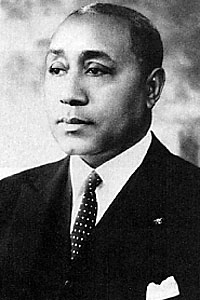
John Wesley Dobbs was an African-American civic and political leader in Atlanta, Georgia. He was often referred to as the unofficial "mayor" of Auburn Avenue, the spine of the black community in the city.
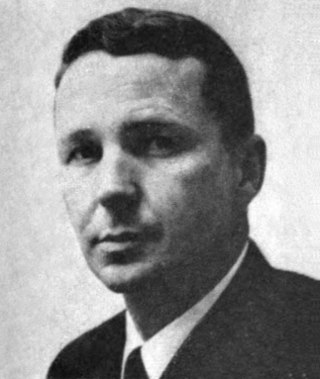
Charles Longstreet Weltner was an American jurist and politician from the U.S. state of Georgia. From 1963 to 1967, he served two terms in the U.S. House of Representatives.

The 2006 Georgia's 4th congressional district election was an election for the United States House of Representatives. The general election was held on November 7, 2006. However, the 4th was a heavily Democratic district, with the Democratic primary viewed as the more important contest. In that primary, DeKalb County Commissioner Hank Johnson upset the incumbent, Cynthia McKinney.

James Curran Davis was an American lawyer, World War I veteran, and politician from the state of Georgia who served eight terms in the U.S. House of Representatives from 1947 to 1963. Davis unsuccessfully sought the presidential nomination at the 1956 Democratic National Convention.

The 1980 United States Senate election in Georgia was held on November 4, 1980. Incumbent Democratic U.S. Senator and former Governor of Georgia Herman Talmadge ran for reelection to a fifth term, but lost narrowly to Mack Mattingly, Chairman of the Georgia Republican Party.
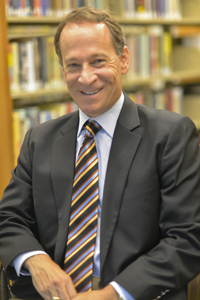
Gary M. Pomerantz is an American journalist and author who lectures in the graduate program in journalism at Stanford University. His books include Where Peachtree Meets Sweet Auburn, a multi-generational biography of Atlanta, Georgia and its racial conscience, told through the families of Atlanta Mayors Maynard Jackson and Ivan Allen Jr., and The Last Pass: Cousy, Russell, the Celtics, and What Matters in the End (2018), a New York Times bestseller about race, regret and the storied Boston Celtics dynasty.

Mary Norwood is an American businesswoman and politician who is a member of the Atlanta City Council. She was a candidate for mayor of Atlanta in 2009 and 2017. In both campaigns she advanced to the runoff, but respectively lost to Kasim Reed and Keisha Lance Bottoms by narrow margins. In addition to her mayoral runs, she represented city-wide posts on the Atlanta City Council from 2002 to 2010 and again from 2014 to 2018. She resides in the Tuxedo Park neighborhood of Atlanta's Buckhead community.
Jesse Hill Jr. was an African American civil rights activist. He was active in the civic and business communities of the city for more than five decades. Hill was president and chief executive officer of the Atlanta Life Insurance Company, from 1973 to 1992, and was the first African American to be elected president of a chamber of commerce in a major city. During Hill's presidency of the Atlanta Life Insurance Company it became the largest black-owned life insurance company in the nation. He was a member of the board of directors for the 1996 Summer Olympics in Atlanta.

Rodney Mims Cook was an American politician who served for over twenty years as Atlanta alderman and member of the Georgia House of Representatives.
Leroy Reginald Johnson was an American politician who served in the Georgia State Senate from 1963 to 1975 after winning a seat in the 1962 Georgia General Assembly election. He was the first black state senator to be elected to the legislature in more than fifty years, since William H. Rogers in 1907, and the first to be elected to the Senate since 1874. He served District 38 in Fulton County and Atlanta, a predominantly black senate district created after the elimination of the county-unit system that same year. Before his term as senator, Johnson was an attorney where he played a role in Atlanta's civil rights movement of the 1960s. He was later a candidate in the 1973 Atlanta mayoral election but received few votes, despite being familiar to voters and having an endorsement from The Atlanta Constitution. The position went instead to Maynard Jackson who in turn became Atlanta's first African American mayor.
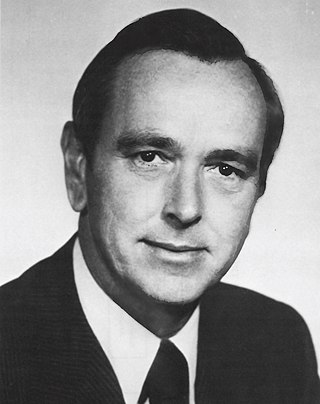
The 1974 Georgia gubernatorial election was held on November 5, 1974. Under Georgia's constitution at the time, incumbent Democratic governor Jimmy Carter was ineligible to serve a second consecutive term. He was elected President of the United States in the 1976 presidential election. George Busbee was elected as the 77th Governor of Georgia.
The Atlanta sanitation strike of 1977 was a labor strike involving sanitation workers in Atlanta, Georgia, United States. Precipitated by wildcat action in January, on March 28 the local chapter of the American Federation of State, County and Municipal Employees (AFSCME) agreed to strike. The main goal of the strike was a $0.50 hourly wage increase. With support from many community groups, Atlanta mayor Maynard Jackson resisted the strike, firing over 900 striking workers on April 1. By April 16, many of the striking workers had returned to their previous jobs, and by April 29 the strike was officially ended.
Panke Bradley Miller is an American politician, civic leader, and social worker who was the first woman to serve on the Atlanta Board of Aldermen from 1972 to 1979.

















